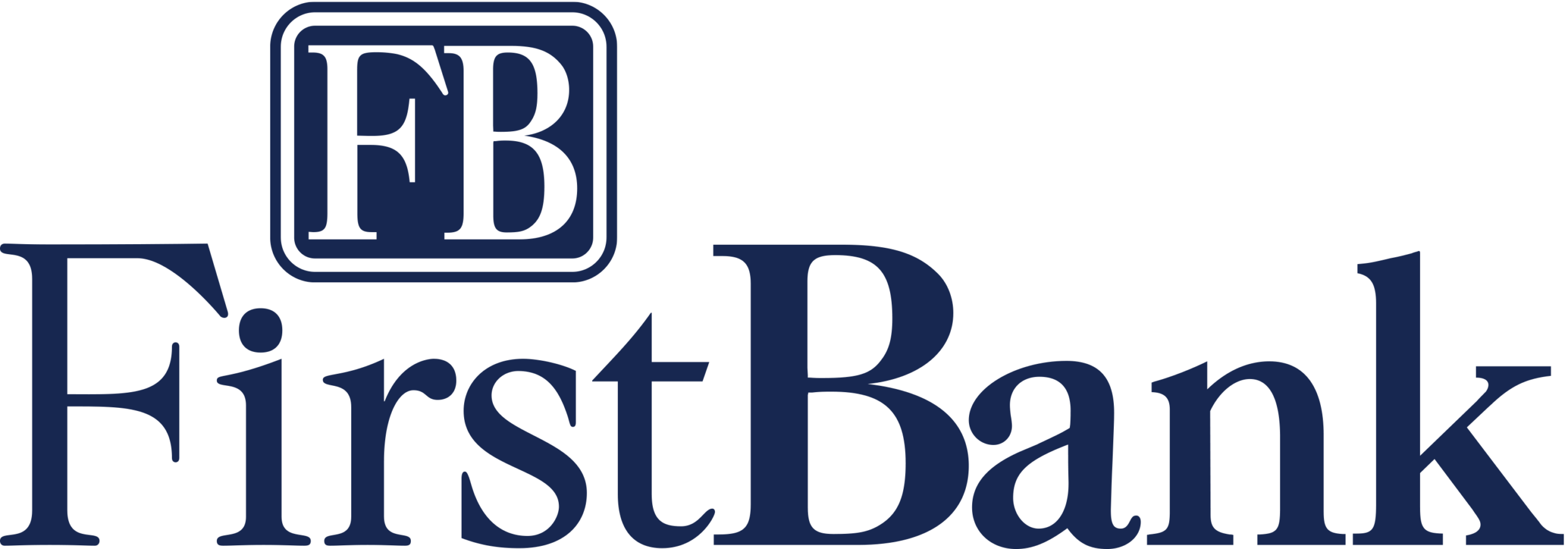Learning to Lead
by Graham HaysEthan Barr’s pursuit of knowledge on and off the field is a blueprint for success
NASHVILLE, Tenn. — Vanderbilt linebacker Ethan Barr, a semifinalist for college football’s prestigious William V. Campbell Trophy, conducts a daily experiment that explores the very limits of time—his time. From dawn to dusk, and often beyond, the senior tests just how much learning he can squeeze into a day.
Barr’s football week starts on Sunday—by the time the alarm goes off Monday morning, he’s already been studying film on the next opponent. Monday afternoon, he and his defensive teammates watch a full breakdown on what the other team runs on first and second down, followed by on-field walk-throughs. As others wind down their days, he begins narrowing his focus—maybe watching specific pass schemes with fellow linebackers.

That’s just Monday. And that’s just the first two downs. In the SEC, as in Vanderbilt lecture halls and labs, there is always more to learn.
“I’ll go from watching film to class, back to watching film, to class, back to watching film,” Barr says. “Until about 7 or 8, depending on the day, if I’m not in class, I’m typically in the film room or with my coach or the linebackers or the rest of the defense watching film.”
Growing up in Texas, a state that doesn’t so much play football as live it, Barr learned a lot about the nuances of playing linebacker. He learned about the opportunity football affords to connect with communities. He learned about the reward that comes with committing to a group of people and building something to last.
At Vanderbilt, he’s learned that you never stop learning: It’s how you begin to lead, how a program begins to win, how you grow.
Campbell Trophy consideration isn’t a just quirky anecdote about the team captain and one of its leading tacklers. It’s not just a sidenote about this standout student and standout linebacker, as if those exist in worlds without overlap. It has come because for the human and organizational development major, all of life is about learning, whether he’s on the field or in a lecture hall or in the film room. He’ll tell you he’s a better linebacker because of school. That he’s a better student because of football.
And on a team that’s doing the hard work of foundation building, Barr embodies a mantra that is a non-negotiable part of the blueprint: How you are in one thing is how you are in everything.
“He very much leads by example, he models what you should do every day,” freshman linebacker Bryan Longwell said. “He is consistent and always in the right place at the right time. When you’re not doing it, he gets on you and will set it straight. He immediately took me in under his wing. It wasn’t awkward or weird, he just accepted me as his own right away.”
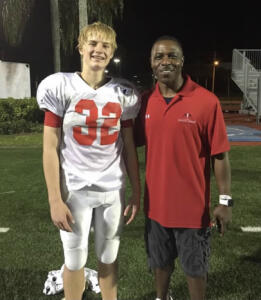 Barr lived the prototypical all-consuming Lone Star football experience. A lot of kids end up playing for a youth team coached by a friend’s dad. But in Texas, the dad was former Texas A&M All-American and NFL veteran Ray Mickens. All high school football players experience rivalry games. But in Texas, Barr experienced them in stadiums packed with 15,000 people—entire communities coming to a standstill on Friday nights.
Barr lived the prototypical all-consuming Lone Star football experience. A lot of kids end up playing for a youth team coached by a friend’s dad. But in Texas, the dad was former Texas A&M All-American and NFL veteran Ray Mickens. All high school football players experience rivalry games. But in Texas, Barr experienced them in stadiums packed with 15,000 people—entire communities coming to a standstill on Friday nights.
Somewhere in there grew the roots of a passion to play the game that can carry a person to the most competitive conference in college football. For Barr, who is also on the watch list for the Wuerffel Trophy as the football student-athlete who “best combines exemplary community service with leadership achievement on and off the field,” there was also a lesson about reach.
Before he was one of the players wearing a jersey around town on high school game days, he saw the conductive potential football holds. It wasn’t just about the attention and adulation directed at the athletes. As plenty of people in Nashville have experienced, from Metro Nashville Public Schools to the Boys and Girls Club and Turner’s Heroes, athletes can harness that energy and return it tenfold to the community.
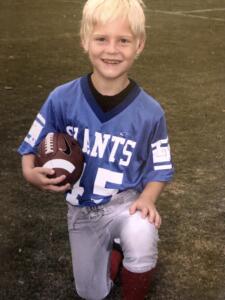 “It’s obviously something important to a lot of people—and it’s cool that these people have gotten to where they are,” Barr said of observing football’s high profile as a kid. “They were obviously doing the right things. You kind of looked at them like your hero, like someone that you want to be. I keep that in mind, and it’s why I try to get involved in the community. Not everyone always has that example, like in their house or around them necessarily. So, you can get in front of people and show them what’s possible, I think that’s the most important thing.”
“It’s obviously something important to a lot of people—and it’s cool that these people have gotten to where they are,” Barr said of observing football’s high profile as a kid. “They were obviously doing the right things. You kind of looked at them like your hero, like someone that you want to be. I keep that in mind, and it’s why I try to get involved in the community. Not everyone always has that example, like in their house or around them necessarily. So, you can get in front of people and show them what’s possible, I think that’s the most important thing.”
How you are in one thing is how you are in everything.
For Barr, many of life’s lessons started while sweating under the hot sun on freshly cut grass. Not all of them involved football—sometimes he was the one doing the mowing.
Barr followed his older brother into football; Creighton Barr was an offensive lineman at North Texas. But he also followed his brother’s lead as an entrepreneur. Growing up, Creighton did yard work for people around the neighborhood. When he left for college, he bequeathed a shed full of equipment to his younger brother. Making some extra money sounded good, so Barr enlisted a couple of friends and posted ads on social networking sites. Looking back, he’s not sure they were ever the cheapest or most efficient choice. But for the customers who were willing to invest in the local kids, Barr and friends developed enough of a reputation for hard work that the annual spring rush found them racing from job to job over very long days.
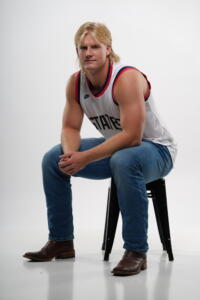 The venture started more as a lark than a carefully planned empire. The hand-me-down equipment meant low start-up costs, and Barr and his friends were used to being outside. But making it a success ultimately meant learning a lot about scheduling, about communicating with customers and about leading co-workers with the attention spans of typical high schoolers.
The venture started more as a lark than a carefully planned empire. The hand-me-down equipment meant low start-up costs, and Barr and his friends were used to being outside. But making it a success ultimately meant learning a lot about scheduling, about communicating with customers and about leading co-workers with the attention spans of typical high schoolers.
“You have a friendship, and you don’t really think about what that would look like in a business aspect,” Barr said. “It shifts a little when you’re working, or you need to work, and you’re like, ‘Hey, we need to get this done.’ You have to be reliable. You have to put out something that’s respectable for your name. And if you don’t, ultimately it reflects badly on me because I was the one talking to people most times.”
Perhaps not surprisingly for a young lawn care magnate, Barr planned to major in economics at Vanderbilt. Yet while he had been responsible for divvying up the pay in his business, econ proved a little too long on math and theory for someone more comfortable with, well, getting in the weeds of day-to-day business operations. In HOD, he found a perfect fit. Keynesian theory might be foreign to him, but the social dynamics of organizations and communities were familiar ground for someone used to huddles and locker rooms.
“Whenever school comes around, I actually am really excited for it,” Barr said. “I enjoy going to class and sitting and learning. I don’t like writing papers, really, but I enjoy the feeling that you get after writing a really good paper—when you know you killed it. You can learn a lot along the way. I enjoy that aspect and learning different things that I wouldn’t learn otherwise, being in class and being in discussions.”
How you are in one thing is how you are in everything.
On the field, Barr wasted no time making his presence felt, even amid the complications of beginning a collegiate career amid a pandemic. He ranked third in tackles per game among SEC freshmen in 2020, including a team-best 10 against Missouri. A year later, he started every game, had more interceptions than any other SEC linebacker and ranked second on the Commodores in tackles. He’s still at it as a senior, entering the final stretch of his final season ranked second on the team in tackles and in the midst of a streak of 34 consecutive starts.
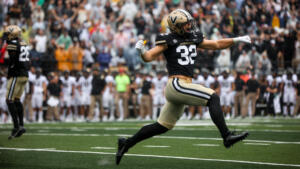
Yet there was a difference between being ready to play and ready to lead, and Barr knew enough to know that he still had much to learn about the latter. Older teammates like Gavin Schoenwald and Ben Bresnahan, his hosts when he first visited Vanderbilt and still two of his closest friends, helped show him the way.
“There were a lot of people who I looked up to,” Barr said. “And it’s like you have to learn how to follow really well first.”
But not forever. Barr’s growth earned him a position as captain each of the past two seasons, joining Jaylen Mahoney as the only two defensive representatives to hold that role for Teams 2 and 3.
“I’ve learned about stepping out of your comfort zone,” Barr said. “Once you earn the respect and trust from the coaches and your teammates—if you’re a leader and you’ve done enough to have a voice—you have the right to step in and say something and take control of the situation and do whatever you think needs to be done. I think that can be respected. I don’t know if I’ve always done that, but definitely this year I’ve tried to start to develop some of that. Because at the end of day, to be most impactful, a leader has to be willing to take charge.”
A leader must also be willing to learn—learn to lead and even learn how to learn. That reveals itself in the classroom, the community, the locker room and when the opposing quarterback takes the snap on the final drive and all those hours in the film room pay off.
Only then will you be able to help those around you learn. For Vanderbilt football, that influence will be felt now and long after Barr makes his final tackle.
How you are in one thing is how you are in everything.

